Filter by
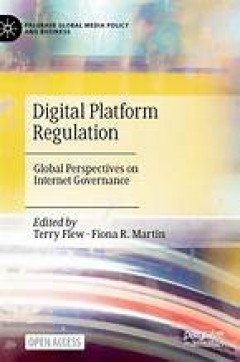
Digital Platform Regulation
This Open Access volume provides an in-depth exploration of global policy and governance issues related to digital platform regulation. With an international ensemble of contributors, the volume has at its heard the question: what would actually be involved in digital platform regulation?’. Once a specialised and niche field within internet and digital media studies, internet governance has i…
- Edition
- 1
- ISBN/ISSN
- 978-3-030-95220-4
- Collation
- -
- Series Title
- Palgrave Global Media Policy and Business
- Call Number
- XVII, 319

European Actorness in a Shifting Geopolitical Order
This is an open access book. With the unprovoked Russian invasion of Ukraine, European security has been put on high alert. The implications of the Russian military invasion are many and difficult to grasp in full. However, the need for greater European strategic autonomy appears increasingly evident. The book argues that strategic autonomy may be reached—also in the short run—if differenti…
- Edition
- 1
- ISBN/ISSN
- 978-3-031-44546-0
- Collation
- -
- Series Title
- The European Union in International Affairs
- Call Number
- XIX, 133
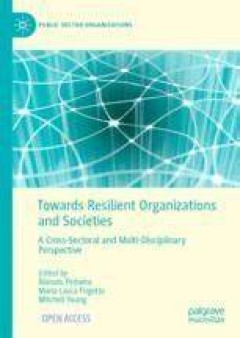
Towards Resilient Organizations and Societies
This open access book brings together scholars in the fields of management, public policy, regional studies, and organization theory around the concept of resilience. The aim is to provide a more holistic understanding of the complex phenomenon of resilience from a multi-sectorial, cross-national, and multidisciplinary perspective. The book facilitates a conversation across diverse disciplinary…
- Edition
- 1
- ISBN/ISSN
- 978-3-030-82072-5
- Collation
- -
- Series Title
- -
- Call Number
- XXIX, 336
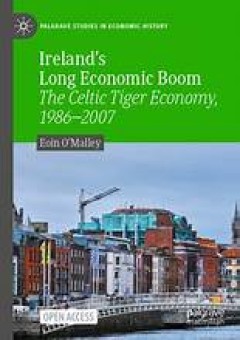
Ireland's Long Economic Boom
This Open Access book examines the long economic boom experienced in Ireland between the late 1980s and 2007, analysing why this boom occurred.
- Edition
- 1
- ISBN/ISSN
- 978-3-031-53070-8
- Collation
- -
- Series Title
- -
- Call Number
- XVI, 264
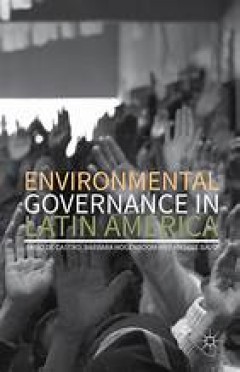
Environmental Governance in Latin America
This book is open access under a CC-BY license. The multiple purposes of nature – livelihood for communities, revenues for states, commodities for companies, and biodiversity for conservationists – have turned environmental governance in Latin America into a highly contested arena. In such a resource-rich region, unequal power relations, conflicting priorities, and trade-offs among multi…
- Edition
- 1
- ISBN/ISSN
- 978-1-137-50572-9
- Collation
- -
- Series Title
- -
- Call Number
- XII, 338
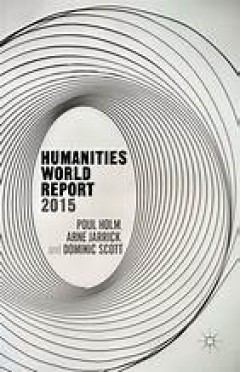
Humanities World Report 2015
This book is open access under a CC BY license. The first of its kind, this Open Access 'Report' is a first step in assessing the state of the humanities worldwide. Based on an extensive literature review and enlightening interviews the book discusses the value of the humanities, the nature of humanities research and the relation between humanities and politics, amongst other issues.
- Edition
- 1
- ISBN/ISSN
- 978-1-137-50028-1
- Collation
- -
- Series Title
- -
- Call Number
- IX, 215

The Political Economy of Non-Western Migration Regimes
This open access book contributes new theoretical and comparative insights on migrant agency, undocumentedness and informality in non-Western, non-democratic migration regimes. The book is conceived as a critical reflection on the contemporary migration regime scholarship, and, more generally, on comparative migration studies, which primarily focus on migrants’ experiences and immigration pol…
- Edition
- 1
- ISBN/ISSN
- 978-3-030-99256-9
- Collation
- -
- Series Title
- International Political Economy Series
- Call Number
- IX, 192
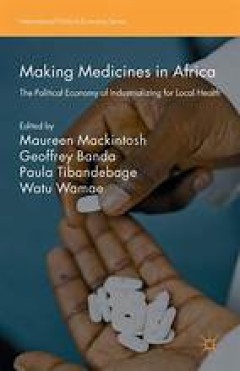
Making Medicines in Africa
This book is open access under a CC-BY license. The importance of the pharmaceutical industry in Sub-Saharan Africa, its claim to policy priority, is rooted in the vast unmet health needs of the sub-continent. Making Medicines in Africa is a collective endeavour, by a group of contributors with a strong African and more broadly Southern presence, to find ways to link technological development,…
- Edition
- 1
- ISBN/ISSN
- 978-1-137-54647-0
- Collation
- -
- Series Title
- International Political Economy Series
- Call Number
- XXI, 334

Teacher Education in the Nordic Region
This open access book is the first account of the whole diversity of teacher education in the Nordic region: Norway, Sweden, Finland, Denmark, Iceland, Greenland, the Faroe Islands, the Åland Islands and Sápmi (where the Sámi people live). Today, large parts of the world are looking to the Nordic model of social organization, and interest in the Nordic comprehensive school system and teacher…
- Edition
- 1
- ISBN/ISSN
- 978-3-031-26050-6
- Collation
- -
- Series Title
- Evaluating Education: Normative Systems and Institutional Practices
- Call Number
- XIV, 384

World Class Universities
This open access book focuses on the dimensions of the discourse of 'The World Class University', its alleged characteristics, and its policy expressions. It offers a broad overview of the historical background and current trajectory of the world-class-university construct. It also deepens the theoretical discussion, and points a way forward out of present impasses resulting from the pervasive …
- Edition
- 1
- ISBN/ISSN
- 978-981-15-7598-3
- Collation
- -
- Series Title
- Evaluating Education: Normative Systems and Institutional Practices Evaluating Education: Normative Systems and Institutional Practices
- Call Number
- X, 289
 Computer Science, Information & General Works
Computer Science, Information & General Works  Philosophy & Psychology
Philosophy & Psychology  Religion
Religion  Social Sciences
Social Sciences  Language
Language  Pure Science
Pure Science  Applied Sciences
Applied Sciences  Art & Recreation
Art & Recreation  Literature
Literature  History & Geography
History & Geography